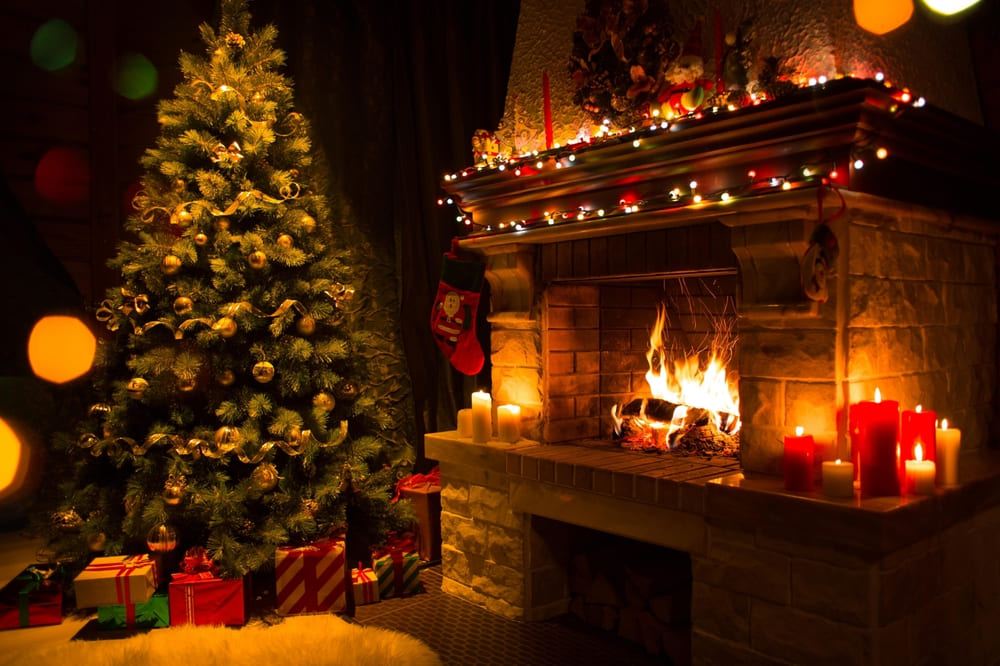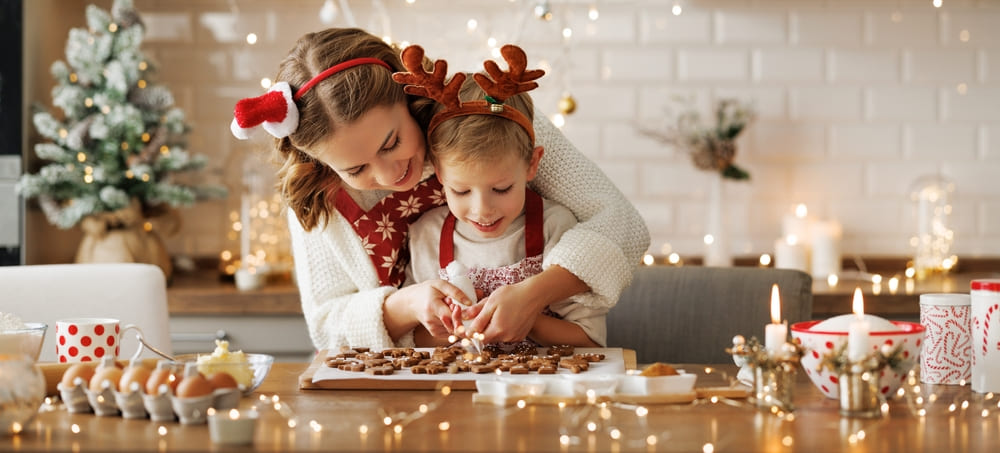
December is a busy month, with the festive period demanding more of retailers, service staff and, sadly, the emergency services, too.
When spirits are high, common sense is usually low, and safety can slip down your list of priorities.
Think about the most popular traditions – trees, twinkling lights, and getting tipsy, to name a few – and you realise just how many are fire hazards.
That’s why we’ve collected the essential fire safety tips for Christmas together in this guide. They’re simple to follow, and checking these off your list should help give you a few more silent nights this December.
The Most Hazardous Time of the Year
The most wonderful time of the year can also be the most hazardous. The excitement, distractions and pressures of a typical family Christmas are enough to make anyone overlook fire safety basics. Combine this with the comfortable haze (and poor decision-making) that comes with festive excess and the likelihood of accidents rises even further.
But Christmas fire safety shouldn’t get in the way of your good time. You need to keep up some basic precautions and exercise (a little) restraint at the right time.
Christmas Fire Safety – Hazards and Safety Tips
Christmas Lights
Most of us hang Christmas lights during the festive period, both in and out of our homes. But few people apply the same logic to them as they would other electrical fire hazards.
We expect Christmas lights to sit tangled in a box somewhere for 11 months and still work perfectly (and for long periods) when it’s time to get them out for the festive season.
Unfortunately, the Christmas spirit doesn’t guarantee electrical safety. You need to treat your lights as any other electrical device:
- Check thoroughly before use – look for frayed wires, damaged bulbs or other faults
- Avoid pulling lights apart to untangle –this may damage the wiring
- Follow the manufacturer’s instructions
- Never use inside lights outside your home
- Make sure lights meet safety standards (look for the British Safety Kitemark or CE, UKCA or UKNI markings)
- Hang lights away from any potential fuel sources
- Upgrade to LED bulbs as they are safer and more efficient
There are other general electrical safety tips you need to keep in mind:
- Confirm the total wattage doesn’t exceed the socket’s limit
- Use multi-way bar adaptors to prevent overheating
- Avoid plugging extension leads into other extension leads
- Switch all lights off overnight and when you leave the house
RoSPA (the Royal Society for the Prevention of Accidents) have some great advice on Christmas fire safety, with a whole section dedicated just to lights.

Other Decorations and Trees
Decorations
Decorations like paper chains and tinsel are flammable, so they must be placed away from heat sources. Finding this distance is admittedly more problematic during winter when we light more candles and fires and hang Christmas lights.
Be especially wary of decorating mantelpieces over working fireplaces, as sparks or embers are potential ignition hazards. Decorations might also fall or trail into the fire.
If your decorations include candles or other open flames, never leave them burning unattended and extinguish them before going to bed.
Trees
Natural and artificial trees will both burn and act as fuel for a fire.
Modern artificial trees are mostly fire-retardant, so they’ll take longer to ignite. This resistance makes them safer than real trees but doesn’t eliminate the risk of them catching fire.
Freshly cut trees are less likely to burn if you opt for the real thing. You can check a tree is fresh by bouncing its trunk against the ground. If the tree sheds a lot of needles on impact, it’s dried out and will ignite more easily.
When choosing a tree, ensure you look after it, as healthy trees are more fire-resistant.
Cooking and Heating
Cooking
Christmas cooking can be stressful. Expectations are high, and menus are complicated. This added pressure can lead to oversights.
It’s essential to keep focused on safety and treat your Christmas in the kitchen as you would any other day of the year:
- Never leave cooking unattended
- Don’t disable smoke alarms
- Check appliances are all switched off after you’ve finished
- Place flammable tea towels and cloths away from heat sources
- Keep saucepan handles out of the way to prevent them from getting knocked
You should also avoid alcohol when you’re cooking. Yes, it’s Christmas, but drinking slows your reaction times, dulls decision-making and affects coordination.
Heating
You might rely on space heaters or open fires to help warm your home – both are fire hazards.
Position space/portable heaters against walls to stop them from falling over. Also, ensure they direct heat away from furniture or other flammable materials like curtains (or decorations).
Only use dry kindling and wood in your fireplace. Paper or other materials cause floating embers, which can ignite decorations if they’re too close. Gifts and trees must be kept away for the same reason.
Again, never leave fires unattended and ensure they’re fully extinguished before leaving the house or going to bed.
Children
Children make Christmas (more hazardous). They can’t help it – anticipation is high and listening isn’t always a priority. With family gatherings, it’s also possible you might have more children to supervise than usual.
Keep decorations out of reach of little hands and tidy wires away to avoid tripping hazards. Supervise any children who want to ‘help’ in the kitchen and keep saucepan handles, hot trays and appliances out of reach. And never leave children alone with lit candles or fires.

Gifts and novelty clothes are also potential fire hazards. Only buy them from reputable places and check they meet safety standards, like the lights. Also, keep gifts away from heat sources – fireplaces, lights and candles. (Adults – this advice also counts for paper crowns and novelty ties.)
General Fire Safety Advice
All other fire safety advice is still relevant at Christmas, so:
- Test your smoke alarms and install one on each floor of your home (if you haven’t already)
- Plan what to do in an emergency and leave doors and windows unlocked overnight (or at least keep keys accessible and tell guests where to find them)
- Leave firefighting to the professionals and dial 999 immediately in an emergency
Fire Awareness Training
This Christmas, give the gift of fire awareness. (For employers, this is mandatory if you haven’t already done so).
Our Fire Awareness Training course doesn’t exclusively cover Christmas fire safety, but it does fulfil employee training requirements. Users develop awareness of occupational fire hazards and the safety measures that control them. The course also covers evacuation procedures and explains the employee’s role in fire prevention.




















































































































































































































































































































































































































































































































































































































































































































































